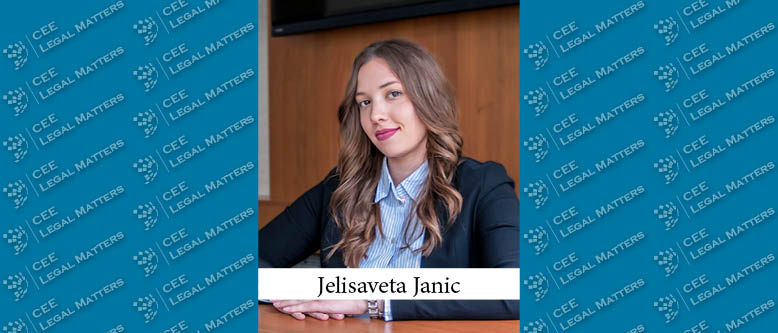In recent weeks, the Slovak Parliament has approved two laws that could substantially increase labour costs for employers in Slovakia. One amendment to the Minimum Wage Act raises the automatic determination rate of the minimum wage, while another introduces a new contribution to cover sports activities for employees' children.
Green Investments and Energy Efficiency Improvements Expected in the Autumn
A new draft regulation was put to public consultation until 27 September 2024 that could bring significant changes to the operation of district heating systems in Hungary. The aim of the regulation is to increase the use of renewable energy sources such as geothermal and biomass in district heating, thus reducing dependence on natural gas and costs.
North Macedonia’s PPP and Infrastructure Progress and Hurdles
In the past few years, North Macedonia has made significant strides in developing its infrastructure. Attracting foreign investors is the main strategy to finance, construct, develop, and manage essential infrastructure projects. The government also engages in PPPs, recognizing their potential to leverage private sector expertise and capital in public service delivery.
Legislative Reforms in North Macedonia: Aligning Capital Market Laws with EU Standards
The spring of 2024 marked a pivotal shift in the Macedonian financial market, with significant reforms on the horizon. As of March 2024, the related legislative framework has come under intense scrutiny, aiming to align more closely with European directives and capital market regulations. This effort has culminated in the adoption of the new Law on Financial Instruments (LFI) and the Law on Prospectus and Transparency Obligations of Securities Issuers (LPTOSI). The primary objective of these reforms is to enhance market efficiency and strengthen the stability of the financial system.
Why Is North Macedonia a Business Haven in Europe?
North Macedonia, strategically located in the heart of the Balkan Peninsula, south-eastern Europe, is a landlocked country with a unique advantage. Its position between two main European corridors, coupled with political and democratic stability and a favorable tax and regulatory framework, makes North Macedonia a promising destination for potential foreign investors. The country offers abundant possibilities, especially in greenfield investments, renewable energy, software, IT services, logistics, construction, cannabis production, agriculture, food services, tourism, etc.
Developments in Serbian Anti-Trust Practice: A High-Profile Case Against Major Retailers
On October 10, 2024, the Serbian Commission for the Protection of Competition (Commission) launched an investigation against four large retail chains – Delhaize Serbia, Mercator-S, Univerexport, and DIS – over possible anti-competitive practices, i.e., alleged retail price-fixing and coordination. The four major retailers account for over 50% of the Serbian retail market.
The Impact of Artificial Intelligence on Personal Data Protection: Challenges and Opportunities
The advancement of technologies, particularly artificial intelligence (AI), inevitably affects our daily lives and raises important questions regarding privacy protection. This article explores the key aspects of the relations between artificial intelligence and personal data protection, with a particular focus on the European Regulation on Artificial Intelligence (AI Act) in relation to the General Data Protection Regulation (GDPR), as well as the legislation of Serbia.
Serbia’s Renewable Energy Sector
Serbia’s renewable energy market is in the midst of transformation, driven by domestic reforms and international partnerships – most recently, with the governments of France and the USA in the field of energy efficiency.
What Is Hindering the Growth of the Digital Asset Market in Serbia – Regulation or Fear of Uncertainty?
Excitement was high when, just over three years ago, the Law on Digital Assets came into effect, positioning Serbia as a pioneer among countries recognizing the development opportunities of advanced technologies that lacked a regulatory framework to reach their full potential. This was followed by a protracted period of enacting secondary legislation, alongside global macroeconomic turbulence, which inevitably impacted the development of industries and markets, especially those that are “young” and insufficiently mature. Despite the enthusiasm and efforts of the local Web3 community and advocates for using digital assets as a tool to boost the national economy, these hurdles appear to have significantly slowed the anticipated growth.
The Future of Finance in Serbia: How Legislative Changes in Payment Services, Banking, and Consumer Protection Will Impact the Market
The Serbian financial sector is undergoing significant changes, with recent and upcoming legislative reforms set to reshape its landscape. The Payment Services Law, adopted on July 31, 2024, introduces key regulatory updates aimed at modernizing payment systems and aligning them with European standards. Additionally, amendments to the Banking Law and the new Financial Consumer Protection Law are expected to be adopted soon, further strengthening the regulatory framework. Together, these changes are expected to have a profound impact on market participants, from traditional banks to fintech companies, as well as consumers, who stand to benefit from enhanced protections and greater transparency.
New Legal Framework on the Horizon for Cybersecurity in Serbia
By the spring of 2025, Serbia will likely have a new cybersecurity law. The law is aimed at bringing the national legal framework in line with that in Europe as expressed in the NIS2 Directive (2022). The draft law that passed the process of the public consultation in 2023 and underwent minor additional changes in 2024 (Draft Law) nevertheless differs from NIS2 in certain important aspects.
Employment Rules for Guest Workers May Be Tightened in Hungary
According to the latest data from the Hungarian Central Statistical Office, nearly 100,000 foreign nationals were employed in Hungary as of July 2024, with almost 80% coming from third countries. After years of government-led anti-immigration messaging, many Hungarians have expressed fear and outrage at the sight of large groups of Indian, Filipino, and Vietnamese workers in smaller towns, perceiving them as competition for job opportunities.
The Development of the Regulatory Framework for Offshore Wind Farms in Greece: Challenges and the Next Day
The development of offshore wind farms in Greece represents an ambitious step in the country’s energy transition, further promoting the shift towards renewable energy sources and the reduction of carbon dioxide emissions. The regulatory framework governing the installation and operation of offshore wind farms has evolved significantly in recent years, reflecting both national and international energy commitments, as well as the technological and environmental challenges accompanying such investments.
Sweeping Changes to Games of Chance Regulations
The proposed Draft Law on Amendments and Supplements to the Law on Games of Chance brings several important changes, certain new legal solutions as a result of the needs of practice and market development, harmonization of the text of the law with technological development in this area, but also introduces new obligations to organizers and significantly increase in fees for obtaining approval and for organizing of games of chance.
Hungarian Government Forbids Solar Panels on Balconies and Agricultural Lands
On 1 October 2024, the Hungarian Government published a decree on the basic regulations of settlement planning and construction requirements, which fundamentally rewrites and clarifies the frameworks for construction and property planning in many areas. Among these, one regulates the placement of solar panels and solar collectors, while another sets out the general framework for the installation of wind turbines.
Just in: New provision on Unauthorized Constructions & Property Transactions
Unauthorized constructions have been a prominent issue in Greek reality for decades, leading to repeated legislative attempts to address it. Currently applicable legislation (law 4495/2017) provides for legalization of such unauthorized constructions, as well as arbitrary changes of use, subject to conditions and further to submission of statements, payment of fines, etc.
CBAM Update: Draft Rules for Authorized Declarants and the CBAM Registry Unveiled
The European Commission recently launched the consultation phase on two essential draft regulations to strengthen the EU Carbon Border Adjustment Mechanism (CBAM) regulation’s operational structure. These include the draft Implementing Regulation for Authorized Declarants and creating a comprehensive CBAM registry. Stakeholders can submit feedback until November 28, 2024. These regulations clarify key aspects of the definitive CBAM implementation, set to begin on January 1, 2026.
A New Era in Hungary's District Heating Sector: Higher Profit Limits and a Focus on Geothermal Energy
The Government of Hungary has overhauled the regulatory framework governing the district heating sector. The legislative changes are primarily aimed at supporting substantial new investments in district heating production by increasing the profit limits for new installations utilising renewable and geothermal energy.
































